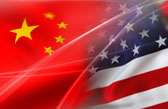China, US talk on negative list positive
By CHEN WEIHUA in Washington (chinadaily.com.cn) Updated: 2016-06-17 13:33The US business community has long hoped that a BIT would help open up more of the vast China market. Many in China hope it will provide better protection to the growing Chinese investment in the US, especially with regard to the controversial CFIUS (Committee on Foreign Investment in the United States) reviews.
Some Chinese also believe a BIT would help push forward necessary economic reforms in China.
China and the US are also facing a potential battle this year. While the Chinese government believes its 2001 WTO accession agreement means that it will automatically enjoy market economy status by the end of this year, Lew said, "it's not automatic" and will be reviewed and determined by the Department of Commerce.
"I said to my counterparts in China that the further you go on a reform agenda, the more likely you are going to succeed," he said.
By refusing to recognize China's market economy status, the US would be able to impose arbitrary anti-dumping duties on Chinese exports, disadvantaging Chinese exporters.
Lew applauded the many achievements in US-China economic relations during the Obama administration. US exports to China have roughly doubled since early 2009, much faster than in any other region of the world.
China and the US, the two largest economies in the world, account for about a third of global output. They have also been the main engines for global growth in recent years.
Lew said both countries recognize that the future of their countries is increasingly interconnected. "Few global relationships are as important as the one between the United States and China. And few global relationships today have evolved as far and hold as much promise," Lew said.
Contact the writer at chenweihua@chinadailyusa.com.







